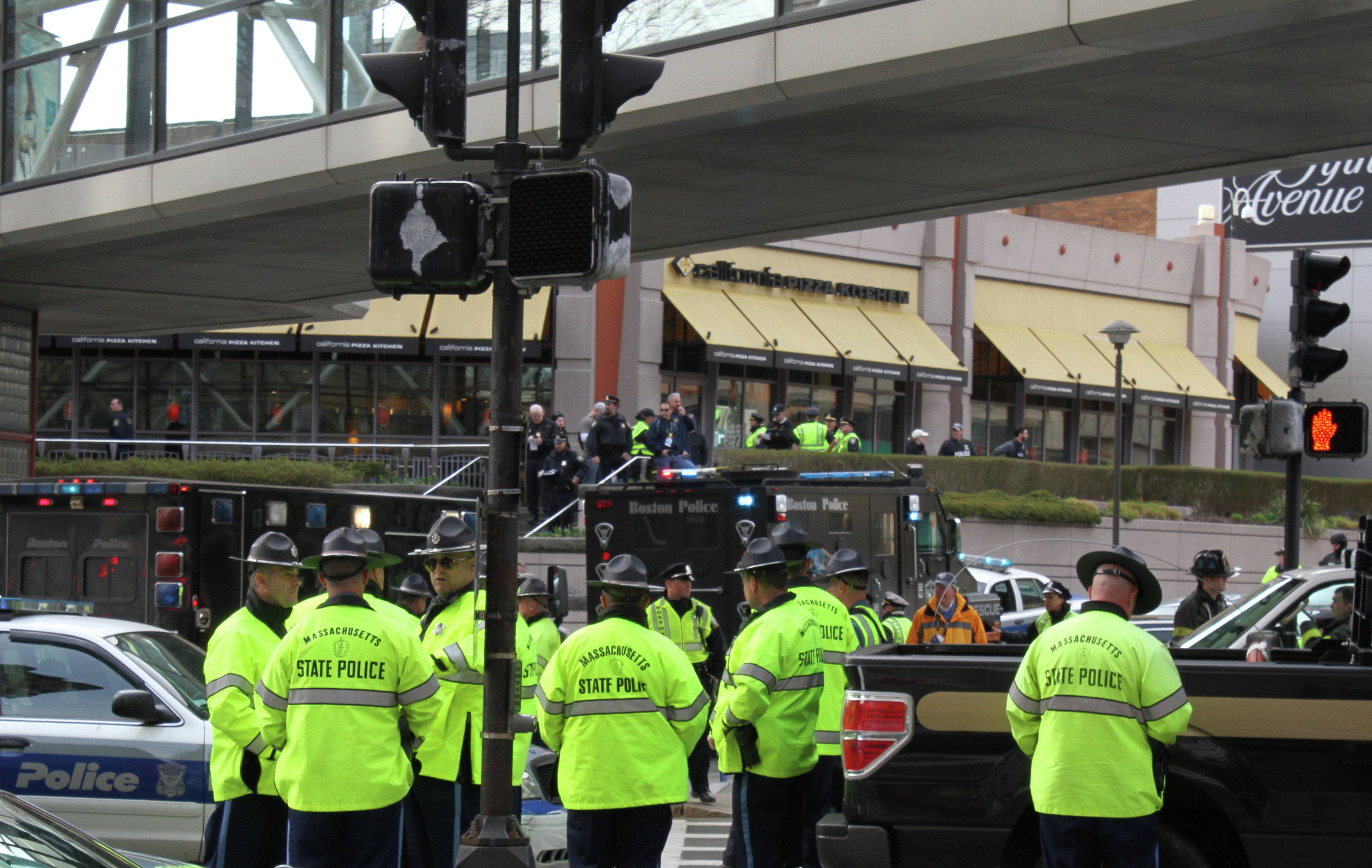Mikhail Safronov, RIA Novosti’s US Bureau Chief
The law enforcement agencies, which played the lead role during the first part of the Boston tragedy, performed in the best traditions of action movies. They chased the suspects, seized their car and engaged in a shootout with the suspects, during which one of the suspected terrorists was killed. Prosecutors and defense attorneys are moving to the forefront during part two, which promises to be no less thrilling, albeit less dynamic.
Three people were killed and more than 200 injured after two powerful explosions ripped through a crowd near the finish line of the Boston Marathon on April 15. 19-year-old Dzhokhar Tsarnaev, one of the bombers, was arrested and remains hospitalized due to severe injuries sustained during the manhunt. The other suspect in the twin bombing, Tsarnaev’s 26-year-old brother Tamerlan,died of wounds sustained in a shoot-out with police.
The initial plot of the story has already been determined. Lawyer Thomas Anthony Durkin, a former Assistant United States Attorney for the Northern District of Illinois, who specializes in criminal law, international human rights and civil rights litigation, said the primary goal of a defense lawyer would be to save the life of the suspect. For their part, Republican Senators John McCain from Arizona and Lindsey Graham from South Carolina have added intrigue to the story by saying that suspect Dzhokhar Tsarnayev should be given “enemy combatant” status and court-martialed as a soldier of an enemy army. This approach was immediately rejected by the advocates of a liberal approach, who noted with good reason that the suspected “Boston Bomber” was a US citizen, and that there was no evidence that he had any ties with Al Qaeda, which is formally at war with the United States. All these debates were conducted on Sunday. On Monday, the US authorities stopped the discussion by indicting the suspect and stating that Tsanayev's trial will be conducted under ordinary criminal law, it will not be a court martial.
At the same time, those involved in the initial plot, regardless of their conservative or liberal views, recognize the fact that Tsarnayev has no prospects of a favorable outcome even from a common civilian trial, because information about the crime has been circulated all over the country and because it is virtually impossible to find a jurisdiction that would foster the formation of an unbiased jury in light of US citizens’ emotional assessment of the alleged actions of the Tsarnayev brothers.
Lawyers are also debating whether Tsarnayev should have been immediately notified of his Miranda rights (“You have the right to remain silent. Anything you say or do may be used against you in a court of law...”) Under normal circumstances, Miranda rights are read out to any suspect prior to interrogation. If a suspect has not been Mirandized, none of their confessions can be entered as evidence in a court of law. Moreover, experts are currently divided on whether Tsarnayev should be Mirandized, or whether he is covered by an exception from the common rule as a suspect in a terrorism case. On a whole, US analysts believe that in this specific situation the authorities have so much evidence that the outcome of the case does not depend on whether Tsarnayev’s personal testimony can be entered as evidence.
“I see a fairly strong case against this young man based on a great deal of evidence, so, as a prosecutor, the top of my list would not be necessarily to Mirandize him and get a usable confession,” said David Raskin, a former federal prosecutor in terrorism cases in New York.
Indeed, the lawyers of the suspected “bomber” don’t have much of a choice, although they have not put a case forward yet. Of course, it is possible to predict their stance, but it appears that the most convincing arguments will come out closer to the trial. The investigation has laid most of its cards on the table, and evidence of Tsarnayev’s guilt, which is seen as incontestable by the public, might not necessarily be accepted by a court of law. Most of the evidence presented to the public is indirect and is already being criticized by small but pro-active groups. The defense may doubt the objectivity of witnesses and shift most of the blame onto Tsarnayev’s older brother, who was killed. Currently, all the evidence points to the fact that Tamerlan Tsarnayev masterminded the terrorist act, with his seniority and his convictions. It is still unclear who killed the police officer, and who subsequently fired at officers during the chase. Therefore it would be natural to try and blame the older brother for this. The defense will still have to change the fairly predictable opinion of Dzhokhar Tsarnayev and the extent of his guilt on the part of the jury when its members are selected. The defense tactics are still a matter of conjecture.
Obviously, the US law enforcement system has been given a chance to demonstrate its efficiency. Police officers have done a very good job. The court of law now has the final say, and it is very important that this part of the Boston tragedy should not turn into a farce.



